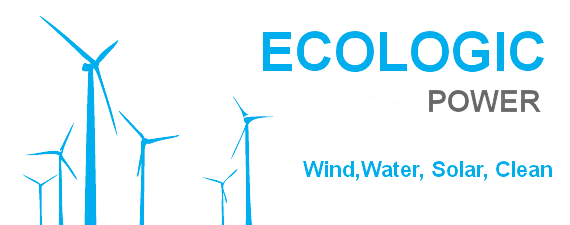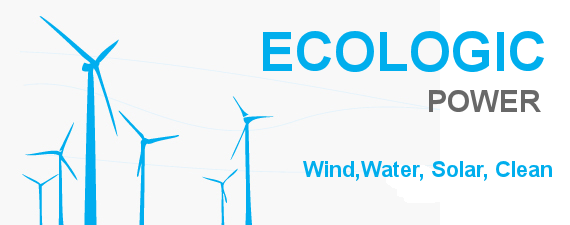If you’re like most homeowners, you’re always looking for ways to save money on your energy bills. One great way to do this is by installing a domestic solar panel system. Solar panels harness the power of the sun to generate electricity for your home. Not only will you be doing your part to help the environment, but you’ll also be saving money on your energy costs! In this blog post, we will discuss everything you need to know about domestic solar panels: what they are, why you should install them, how much they cost, how to install them, and how to maintain them.
What are solar panels and what do they do
Solar panels are devices that convert sunlight into electricity. They are made up of a number of solar cells, which are connected together to form a panel. They can be used to power domestic appliances such as lights and televisions, and they can also be used to generate heat or provide hot water.
Domestic solar panels are usually mounted on the roof of a house, where they can capture the most sunlight, and they typically have a lifespan of around 25 years, after which they will need to be replaced.
How much do solar panels cost and how can you afford them
Solar panel installation costs will vary depending on the size of your home and the number of panels you need, but the average cost is between $4,000 and $8,000.
However, given the relatively high purchase and installation costs, there are many ways to finance solar panels, such as taking out a loan, signing up for a lease, or purchasing them outright.
Although domestic solar panels can be an expensive investment, they will save you money in the long run so, if you’re interested in going solar, we recommend that you research different financing options to find the best one for you.
The benefits of having solar panels installed in your home
Solar panels are a great way to save money on your energy bills and reduce your carbon footprint. Even if you live in an area with limited sunlight, domestic solar panels can still generate a significant amount of power. In fact, the average domestic solar panel can produce around 50 kilowatts of power per year and that’s enough to power a typical three-bedroom home for a whole year!
Of course, if you are lucky enough to live in a sunny climate, you could even generate surplus electricity that you could sell back to the grid.
So, solar panels are a great investment for any home, and with government incentives, there has never been a better time to install them.
As well as being environmentally friendly, solar panels are also a great way to reduce your reliance on fossil fuels and the grid and so lower your carbon footprint. Given that most domestic solar panels can generate up to 50% of your annual electricity needs and considering the sky-high cost of energy these days, they can pay for themselves very quickly.
Additionally, solar panels can increase the value of your home, making them a wise investment for the future.
But, as with everything, if you’re considering installing solar panels, be sure to do your research and choose a reputable company to do the work. However, considering all the benefits that solar panels offer, there’s no reason not to make the switch to cleaner, renewable energy!
How to install solar panels in your home
The domestic solar panel market has exploded in recent years, thanks to advances in technology and a growing awareness of the environmental benefits of solar energy. But, that’s a good thing because it’s now easier, and even cheaper, than ever before to install panels yourself.
If you’re considering installing solar panels in your home, here’s what you need to know.
The first step is to assess your energy needs and determine how many panels you’ll need to offset your domestic consumption. To calculate this, you’ll need to know your home’s energy usage, which you can find on your most recent electricity bill.
Once you’ve done that, you can then research the different types of solar panels and decide which ones are best for you. There are two main types of solar panels: monocrystalline and polycrystalline. Monocrystalline panels are made from a single crystal of silicon and they’re the most efficient type of panel, but they’re also the most expensive.
Polycrystalline panels, on the other hand, are made from multiple crystals of silicon and they’re not quite as efficient as monocrystalline panels, but they’re much cheaper.
Once you’ve decided on the type of panel, you’ll need to purchase them and have them delivered to your home. Once they’re delivered, you can then start the process of installing them.
If you’re not comfortable doing the installation yourself, there are many companies that will do it for you, but it’s not a difficult job and it’s certainly something that you can do yourself if you’re handy.
The most important thing is to make sure that the panels are installed in an unobstructed location that gets plenty of sunlight.
The next step is to connect the panels to your home’s electrical system. If you aren’t a competent electrician, you’ll need to hire someone to do this for you.
Once the panels are installed and connected, they should start generating electricity immediately.
However, it’s important to note that domestic solar panels don’t work on cloudy days or at night, so you’ll still need to have a backup power source, such as a generator, in case of bad weather.
Finally, you’ll need to monitor your usage and make sure that the system is working properly. With a little effort, you can rest assured that your home is running on clean, renewable energy.
Solar panels are a great way to generate clean, renewable energy for your home and they can save you a lot of money on your electricity bills. With the right installation and maintenance, they should last for many years. So, if you’re considering making the switch to solar, now is the time to do it!
How to maintain your solar panel system for optimal performance
As we have now ascertained, solar panels are a great way to save money on your electricity bill and help the environment by reducing your reliance on fossil fuels. However, even though they are pretty maintenance free they do require some attention in order to keep them working at their best.
Here are some simple tips for maintaining your domestic solar panel system:
- Check the panels regularly for dirt, dust, or bird droppings, as these can reduce their efficiency.
- Keep the area around the panels clear of obstacles such as trees or shrubs, as this can also reduce their output.
- Have the system serviced by a qualified technician every few years to ensure that everything is in good working order.
By following these simple tips, you can help to ensure that your solar panel system continues to run smoothly and efficiently for many years to come.
Final Words
Domestic solar panels are a great way to reduce your reliance on fossil fuels and save money on your electricity bills. With the right installation and maintenance, they should last for many years. So, if you’re considering making the switch to solar, now is the time to do it! Not only will you be doing your bit to help the environment,


